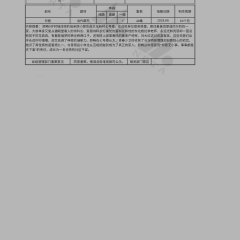When Gu Chang was 7 years old, he moved with his mother into Building 7 of Haihe East Village, where his stepfather lived. Due to foundation problems, Building No. 7 only has three floors and six households, but it is a microcosm of all kinds of life. Gu Chang grew up and was nurtured here. She witnessed the various fates and experiences of her neighbors and also fell into the pain of love and emotion with her neighbors. Whether it is the ordinary life of the parents, or the love-hate entanglement of the younger generations, the true love of the world of "distant relatives are not as good as close neighbors" is staged day after day in Building No. 7. Gu Chang has experienced neighbor conflicts in different eras: noise, group renting, keeping pets, decoration, illegal construction, fires, residential changes, private kitchens in residential areas, occupying public spaces, invasion of privacy, live broadcasts, express delivery troubles, etc. Gu Chang Witnessing the changes in Building No. 7, I became more determined to serve the residents in a down-to-earth manner and gradually became an excellent community cadre. The play is eloquently told, full of life and yet warm and touching. (Source: Chinese = Weibo || Translation = MyDramaList) Edit Translation
- English
- Español
- Português (Brasil)
- 한국어
- Native Title: 邻居
- Also Known As: Wo Men De Lin Ju , 我們的鄰居 , 我们的邻居
- Director: Xia Xiao Yun
- Genres: Family

























